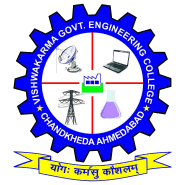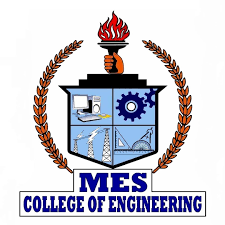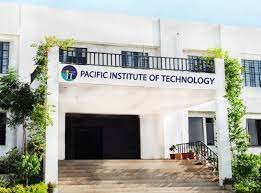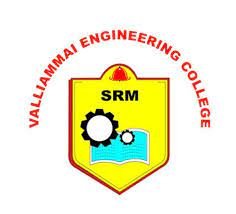M.Tech. in Control & Instrumentation offers diverse careers, innovation opportunities, and contributes to industries globally.
Future Scope & Benefits: M.Tech. in Control and Instrumentation Engineering Course
Pursuing an M.Tech. in Control and Instrumentation Engineering is a significant step toward specializing in a field that plays a pivotal role in industries ranging from manufacturing and energy to healthcare and aerospace. This program equips graduates with the knowledge and skills to design, develop, and maintain control systems and instrumentation, making them indispensable professionals in the modern world. Here's a comprehensive look at the future scope and numerous benefits associated with this advanced degree.
1. Thriving Industrial Landscape
The industrial sector in India and globally is continuously evolving, with a growing emphasis on automation, process optimization, and precision control. Industries such as manufacturing, energy, pharmaceuticals, and chemical processing rely heavily on advanced control and instrumentation systems to enhance efficiency, safety, and quality. As a result, there is a high demand for skilled control and instrumentation engineers.
2. High Demand for Specialized Skills
Graduates of M.Tech. in Control and Instrumentation Engineering are in high demand due to their specialized skills. Industries seek professionals who can design, implement, and manage control systems, sensors, and instrumentation. These engineers play a crucial role in ensuring that processes run smoothly and systems operate efficiently, reducing downtime and enhancing productivity.
3. Diverse Career Opportunities
One of the significant advantages of this program is the wide range of career opportunities it offers. Graduates can explore roles such as:
Control Systems Engineer: Specializes in designing and maintaining control systems for machinery, processes, and industrial automation.
Instrumentation Engineer: Focuses on the design and maintenance of measurement and control instruments used in various industries.
Automation Engineer: Responsible for designing and implementing automated systems and processes to improve efficiency and productivity.
Project Manager: Manages and oversees control and instrumentation projects, ensuring they are completed on time and within budget.
Consultant: Provides expert advice to organizations looking to optimize their control and instrumentation systems.
Researcher: Engages in cutting-edge research and development, contributing to the advancement of control and instrumentation technology.
Academician: Pursues a career in academia, teaching and mentoring future engineers, and conducting research in the field.
4. International Opportunities
The skills acquired in control and instrumentation engineering are in demand globally. Graduates have opportunities to work on international projects, collaborate with multinational corporations, and explore job markets worldwide. The ability to adapt to different industries and regulations is a valuable asset for international career prospects.
5. Technological Advancements
The field of control and instrumentation engineering is continually evolving, with rapid technological advancements. Graduates are at the forefront of adopting and implementing new technologies, including the Industrial Internet of Things (IIoT), Artificial Intelligence (AI), and Machine Learning (ML) to enhance control and monitoring systems. Staying updated with the latest developments ensures their skills remain relevant and in demand.
6. Problem Solving and Innovation
Control and instrumentation engineers are problem solvers by nature. They apply their knowledge and expertise to address complex issues, improve processes, and optimize systems. This constant drive for innovation is a rewarding aspect of the profession, as engineers have the opportunity to make a tangible impact on industries and society.
7. Competitive Compensation
Due to the specialized nature of the field and the critical role they play in industries, graduates of M.Tech. in Control and Instrumentation Engineering often command competitive salaries. Compensation packages include attractive salaries, benefits, and the potential for performance-based bonuses.
8. Contribution to Sustainable Practices
Control and instrumentation engineers have a significant role in promoting sustainable practices. They help industries optimize resource utilization, reduce energy consumption, minimize waste, and meet environmental regulations. Contributing to sustainability aligns their careers with global efforts toward environmental conservation and efficiency.
9. Research and Development Opportunities
For those inclined toward research and innovation, an M.Tech. can serve as a stepping stone to a Ph.D. program. Engaging in research and development allows graduates to make substantial contributions to the field, shape its future, and potentially become subject matter experts.
10. Networking and Collaboration
During their studies, students have the opportunity to network with professors, industry experts, and fellow students. Building a professional network can be invaluable when seeking job opportunities, collaborations, or research partnerships in the future.
11. Positive Economic Impact
By enhancing the efficiency and productivity of industrial processes, control, and instrumentation engineers contribute to economic growth. Increased productivity, reduced downtime, and improved product quality are essential factors in fostering economic development and job creation.
12. Varied Industry Applications
Control and instrumentation engineering find applications in diverse industries such as manufacturing, automotive, aerospace, energy, healthcare, and environmental monitoring. Graduates can choose to work in an industry that aligns with their interests and career goals.
13. Adaptability to Emerging Technologies
The field is adaptable and dynamic, allowing professionals to stay current with emerging technologies and trends. As industries evolve and incorporate new technologies, control, and instrumentation engineers are well-equipped to adapt and thrive in changing environments.
14. Entrepreneurial Opportunities
Entrepreneurial individuals can explore opportunities to start their companies or consultancy firms specializing in control and instrumentation solutions. This path allows them to offer innovative services and technologies to various industries.
 2 Years
2 Years
 Post Graduate
Post Graduate
 Engineering
Engineering
 Full Time
Full Time





















 back
back

